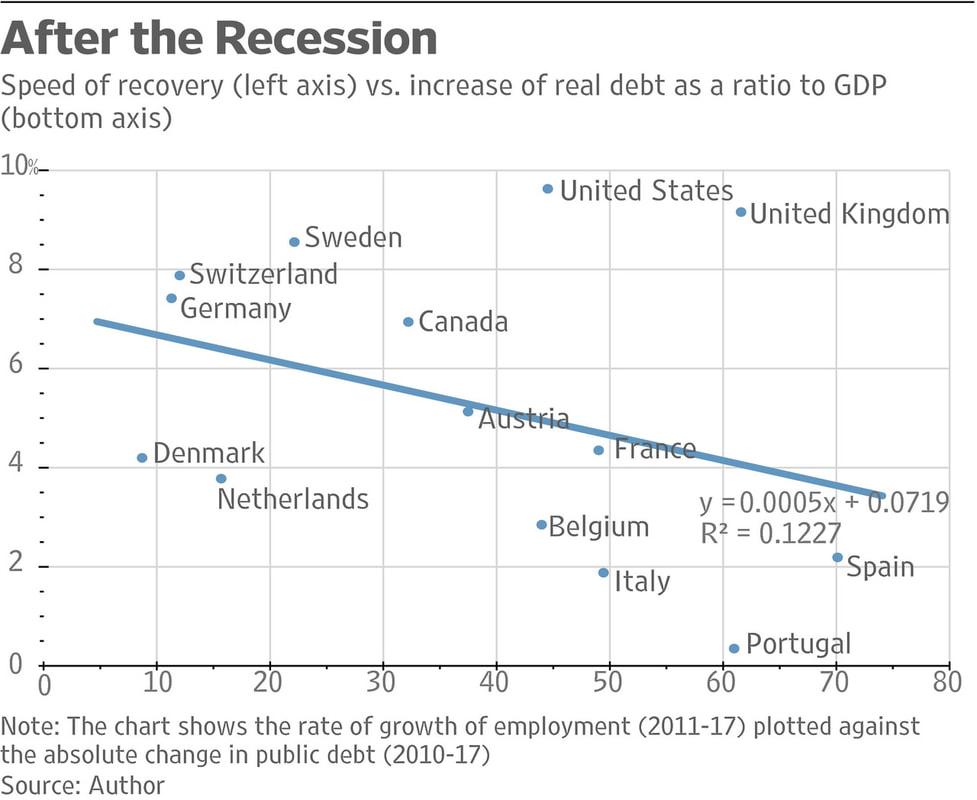|
In this Let People Prosper episode, let's discuss Nobel prize-winning economist Paul Krugman's recent concern about the $779 billion budget deficit in FY 2018 under President Trump. Unfortunately, he wasn't worried about the 4 years of more than $1 trillion in deficits under President Obama and he in fact wanted even higher deficit spending. This episode provides a lesson in economics on the aggregate demand-aggregate supply model of how these policies should work in theory but how this mainstream view misses a lot that actually results in my preferred mainstream view of how the economy actually works and the burden higher government spending and resulting deficits put on economic activity and our prosperity.
Last Friday the Bureau of Economic Analysis reported that there was an increase of 3.5% in real GDP growth in the third quarter of 2018, indicated that 2018 may be above 3% growth for the first time in more than a decade. This issue along with the rising deficit gave rise to Krugman's tweet below. Here's what Krugman tweeted: "Reaction to the GDP numbers: quarterly growth rates don't mean much. For one thing they fluctuate a lot -- e.g. rapid growth in 2014, signifying little. For another, you can always juice the numbers for a few quarters by running big deficits. What about the long term"? Here was my tweeted response to his tweet that received a lot of attention: "Who is this @paulkrugman who wasn’t worried about budget deficits during #Obama’s 4 years of more than $1 TR deficit but is worried about #Trump’s $779 B? Recall #Krugman was in favor of LARGER deficit spending to “stimulate” the economy under #Obama. Principles matter." I recommend going to my tweeted response and viewing the comments and discussion. It was a rather lively discussion with some good info in there along the way, but much of it was just noise. This recent WSJ opinion piece by Nobel prize-winning economist Edmund Phelps explains the fantasy of fiscal stimulus quite well along with the nice figure below that shows stimulus doesn't correlate with faster economic growth. What we really need for more prosperity is a government that simply sets the rules of the game such that the institutional framework allows for civil society to flourish along with the resulting prosperity for people. Government under presidents of each main party have fallen victim to the "stimulus" argument when in fact it should be about providing the most pro-growth economic environment while running balanced budgets. A good model would be to look at Texas. #LetPeopleProsper
0 Comments
Leave a Reply. |
Vance Ginn, Ph.D.
|


 RSS Feed
RSS Feed